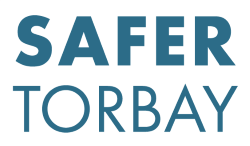You and the person you are worried about might need some help to decide what to do next, especially around keeping them safe.
Please note that the information below is general. Specialist services and organisations like Torbay Domestic Abuse Service and the police are able to offer detailed safety planning advice.
It is always recommended that anyone seeking this kind of support with safety planning should contact a specialist service to discuss their own specific and unique circumstances.
About developing a plan
You do not have any control over your partner’s violence but you do have choices about how to respond to situations and how you can get yourself (and your children) to safety. Whether or not you feel you can leave your abuser – there are things you can do to keep you and your family safe. This information in this booklet will help you to plan ahead, stay safe, and will make any decisions easier in times of crisis. It has been put together with assistance from victims and survivors of domestic abuse.
Safety at home
Helping to plan their exit from home if they need to leave in a hurry:
- Always make sure they can get to an outside door.
- Stay out of the kitchen (keep clear of things that could be used as a weapon).
- Keep some money handy.
- Keep a phone with them, charged and in credit.
- Decide on a safe place where they will go once they’re out of the house.
Safety online
Things to think about with technology, especially on shared equipment:
- Has their phone got a tracker app installed? Good if the phone is stolen, not good if an abuser can use it to find them.
- Decide whether or not to disable GPS. It can be useful for getting directions etc but can also reveal location.
- Keep off social media sites or use them less often. Think about what is posted and never give their location away.
- Be cautious of posting pictures. Data hidden inside images can reveal where a picture was taken.
- Think about whether they and their abuser have mutual friends - who can be trusted?
- Change passwords regularly - use passwords that can’t be guessed and use letters, numbers and symbols.
- Change the answer to password reminder options. Some sites will ask for things like Mother’s Maiden Name or the Primary School you went to. An abuser will know this information and could use it to hack accounts.
- Delete browsing history if this shows sites they would not want their abuser to know they had visited
- Regularly search for yourself online. See what information comes up and you can then manage that and have things removed if you need to.
Calls for help
Think about how to disguise a call for help:
This might not be easy to achieve, particularly if someone is prevented from having access to a phone, but may provide a safer alternative than trying to dial 999 and having a conversation direct with the police.
- Agree a code word or phrase that wouldn’t make their abuser suspicious.
- If they are in a dangerous situation and are able to get to a phone they can call you, tell you the code and you can then call the police.

